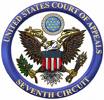Community Justice in Wisconsin
I am looking forward to the Law School’s 2009 Public Service Conference, which will address “The Future of Community Justice in Wisconsin.” Organized by our Assistant Dean for Public Service, Dan Idzikowski, the Conference will take place on Friday, February 20. Dan has supplied the following post to explain the significance of “community justice” and why it is such an important topic today, particularly for anyone interested in the fairness and effectiveness of the criminal justice system:
Community justice councils, or criminal justice coordinating councils, have been established in several communities across Wisconsin. These councils bring together key local decision-makers to address the coordination, cost, and effectiveness of the criminal justice system in their area. Milwaukee County, which has the State’s largest concentration of offenders and criminal justice resources, recently established its own Community Justice Council. Remarkably, this council has brought together leadership across the political spectrum to address crime and corrections in the Milwaukee area. The Marquette Law School Public Service conference is designed to support this collaboration and bring together criminal justice experts to lend their counsel to these efforts. For example, Jeremy Travis, the keynote speaker, is the President of the preeminent John Jay School of Criminal Justice at the City University of New York, the former director of the National Institute of Justice at the U.S. Justice Department, and the author of several books and studies on community corrections and reentry issues.
Why is community justice a critical public issue at this time? The past two decades have seen an explosion in Wisconsin’s prison and jail populations. Since 1990 over a dozen new state-operated correctional facilities were brought on line, and existing institutions were expanded. The cost of providing corrections services in Wisconsin grew from $178.4 million in 1990, to $583.4 million in 2000, to $1.2 billion in the current biennium.


